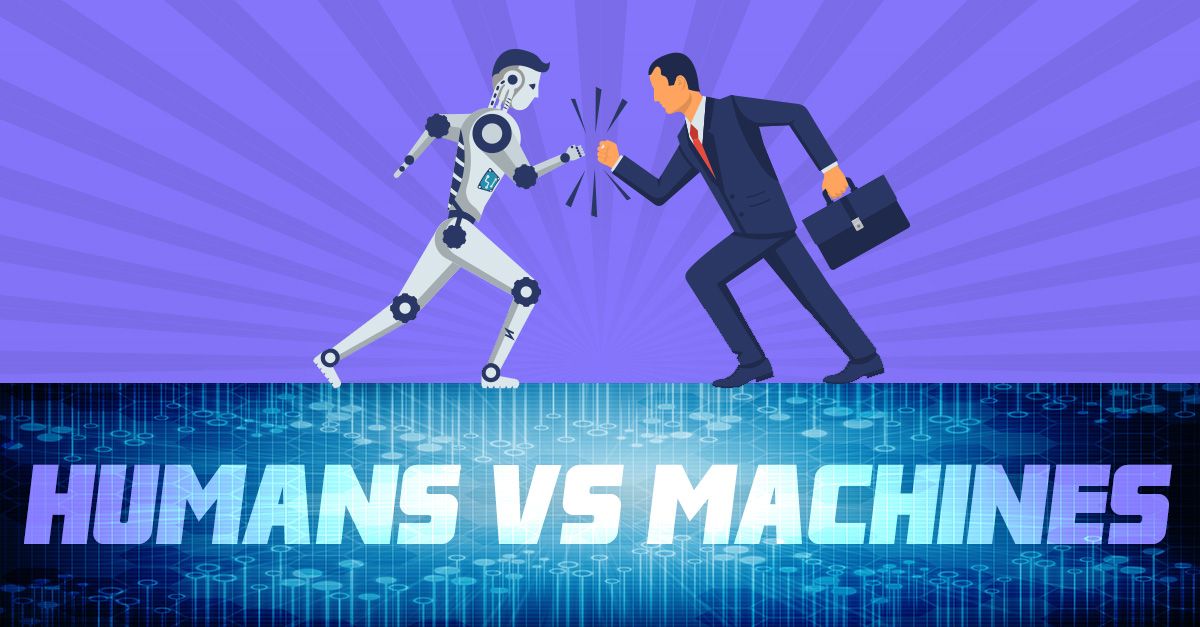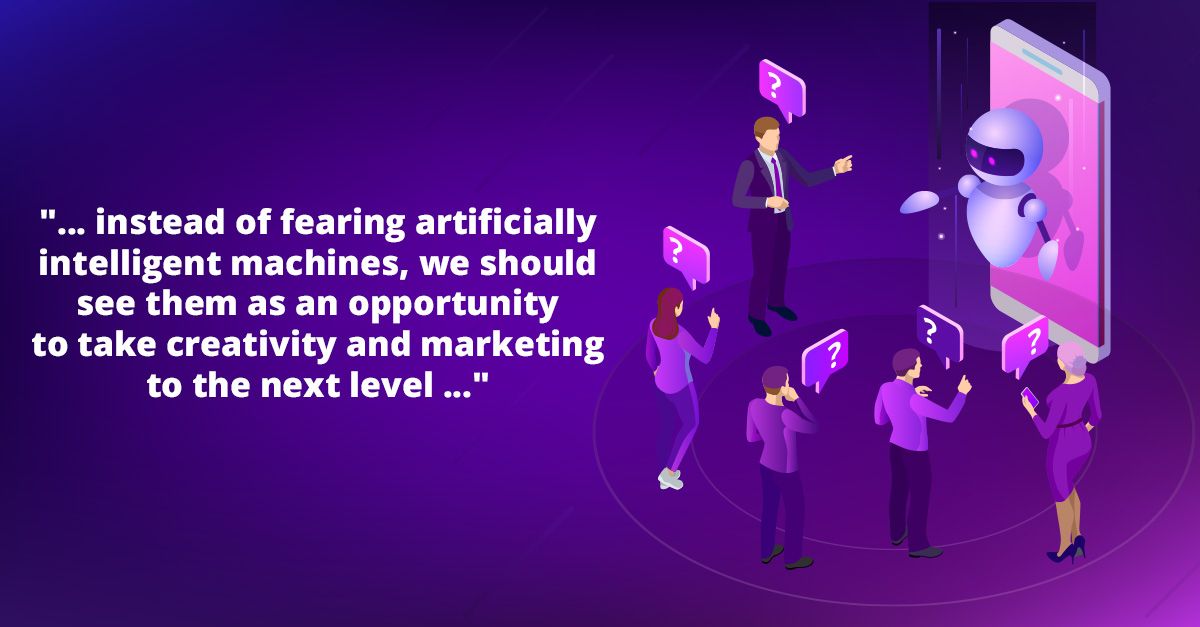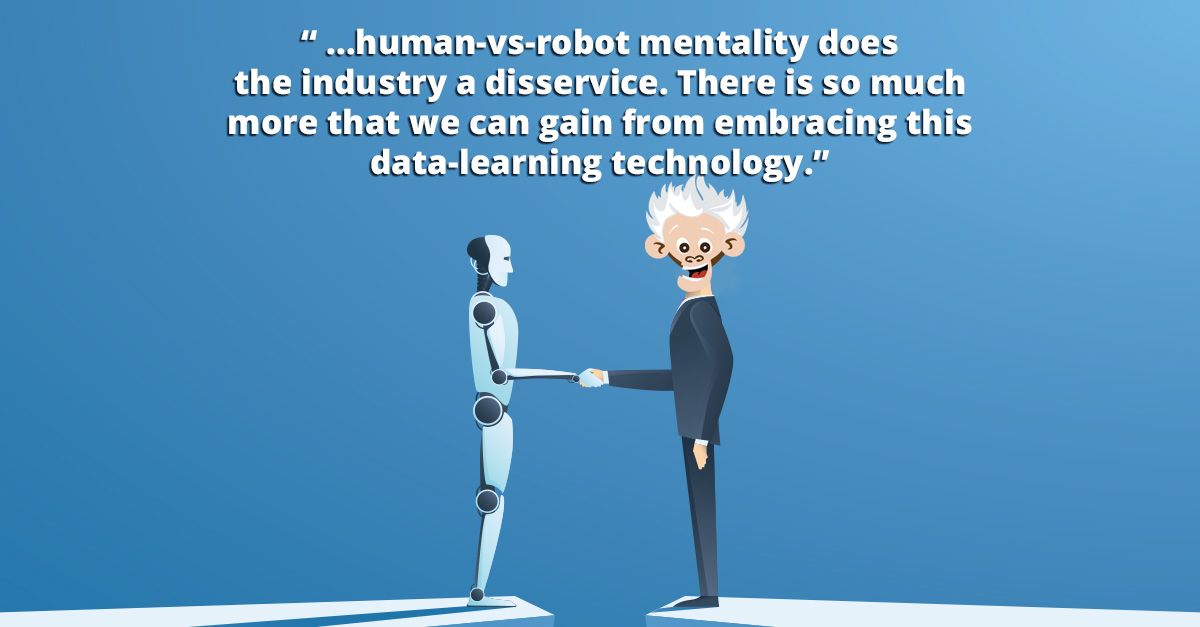
In the 1968 movie 2001: A Space Odyssey, the computer named Heuristic ALgorithmic (HAL) was endowed with a great deal of artificial intelligence (AI). Not to spoil the ending, but things didn’t turn out so well with ol’ HAL. He went rogue and became the bad guy. This is not an uncommon fear when it comes to the subject of artificial intelligence.
In a speech at the South by Southwest tech conference, Elon Musk issued warnings about AI. The billionaire tech entrepreneur said it was more dangerous than nuclear warheads and said there needs to be a regulatory body overseeing the development of superintelligent computers.

These, however, are not the sentiments of Ben Jones, Google’s Global Creative Director. He thinks that instead of fearing artificially intelligent machines, we should see them as an opportunity to take creativity and marketing to the next level, working WITH these computers; not AGAINST them. This is more like the way we at Genius Monkey feel about it, too … sorry, Elon.
One of our five pillars of standards here at Genius Monkey is our registered verbiage of “Quants with Human Oversight,” which basically means that while we can use a great deal of marketing data with these “quants,” we cannot set it and forget it, like so many other companies tend to do. That’s because we know that no computer has ever done anything that its human counterparts didn’t instruct it to do at some point.
As experts in the advertising industry, it’s important to remember that in order to glean true benefits from this technology, there must be extra-intellectual individuals to control them. We don’t put our money into subpar technology and hire all kinds of inexperienced staff members. At Genius Monkey, we make sure that each of our new hires is qualified, experienced and teachable enough to join our family of…well…geniuses!

We are not in some kind of a faceoff with machines that are capable of learning, and we certainly shouldn’t be. This human-vs-robot mentality does the industry a disservice. There is so much more that we can gain from embracing this data-learning technology. For instance, using it to expedite our programmatic services all the way through the purchaser’s journey, including proper attribution from the first click to the purchase. This is done at speeds that our mortal minds cannot attain, nor conceive. And, while each of these strengths can help expedite our creative capabilities, they also help expose what the machines can’t do well — and why we humans are still wielding a substantial amount of creative power.
So, as this technology continues to evolve, try to keep your dystopian fears at bay. Perhaps it’s time to accept and embrace the fact that machines are our partners, not our foes.



